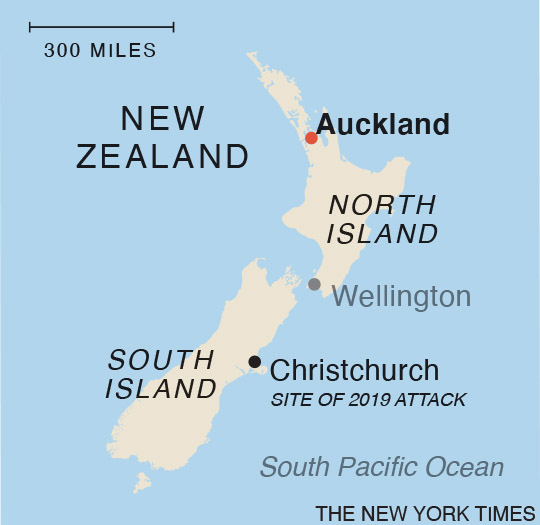A man who wounded seven people in a supermarket had been under surveillance for months.

New York Times reporting by Natasha Frost
When Ahamed Aathill Mohamed Samsudeen grabbed a knife at a Countdown supermarket Friday in West Auckland and began stabbing shoppers, the police were just outside.
They had followed him there. They had, in fact, been following him for months, since he was released from prison. Officials at the highest levels of New Zealand’s government knew about Samsudeen, an Islamic State group sympathizer — including Prime Minister Jacinda Ardern, who had received briefings about his case.
Samsudeen, whose name was made public Saturday night after a New Zealand court order lapsed, was considered so dangerous that on the very day he wounded seven people at the supermarket and was shot dead by the police, Ardern’s government had been trying to expedite counterterrorism legislation in Parliament to give law enforcement officials a legal way to take him back into custody.
“Agencies used every tool available to them to protect innocent people from this individual,” Ardern said at a news conference Saturday afternoon. “Every legal avenue was tried.”
Three of the people wounded in the attack were in critical condition Saturday.
New Zealand has low and declining crime rates and is far from the flashpoints of global terrorism. But questions about how the country handles potential assailants have grown in volume since 2019, after an anti-Muslim terrorist murdered 51 people at two mosques in the city of Christchurch.
Now, like other countries, New Zealand is grappling with the trade-offs between monitoring suspects and preventing terrorist attacks, and with concerns about containing the power of the government and the police to surveil and detain people based on suspicions.
Samsudeen, who was a Sri Lankan national, traveled to New Zealand on a student visa in 2011. A Tamil Muslim, he was granted refugee status in 2013. Four years later, in 2017, Samsudeen was arrested at the airport in Auckland on suspicion of planning to travel to Syria to join the Islamic State militant group. He subsequently spent three years in prison on a variety of charges.
Officials had taken steps toward removing Samsudeen from New Zealand in 2018 and 2019. But a deportation appeal process was still playing out at the time of the attack, with a hearing scheduled for this month after delays because of an earlier criminal trial and because of coronavirus restrictions.
This article originally appeared in The New York Times.
c.2021 The New York Times Company



